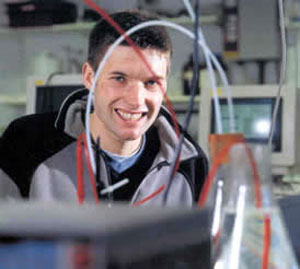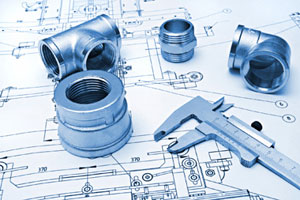Aeronautical Engineer
Tasks & duties

Aeronautical engineers may do some or all of the following:
-
study aircraft defects and recommend repairs or modifications
-
design and approve the data needed for modifications and repairs to aircraft
-
design equipment or tools to repair or maintain aircraft
-
create instructions on how to use, maintain and calibrate (adjust to measure accurately) this equipment
-
discuss designs and data with colleagues, aircraft engineering tradespeople, aircraft manufacturers and airline owners
-
create records, that is to be kept on file for future reference for approved data (drawings, technical instructions, assessments and calculations)
-
oversee modifications to aircraft
-
take responsibility for all approved data
-
give technical and regulatory advice to professionals within the aerospace industry
Skills & knowledge

Aeronautical engineers need to have:
-
knowledge of aircraft structures and engine systems
-
a good understanding of aerodynamics (how aircraft fly) and thermodynamics (the effects of heat on aircraft)
-
knowledge of design techniques and engineering principles
-
an understanding of mechanical processes and the metals and alloys used in aircraft
-
knowledge of civil aviation laws and regulations
-
the ability to explain complicated ideas in simple language for report writing or to express design plans to aircraft engineers and technicians
-
analytical and problem-solving skills
-
mathematical and computer-aided design (CAD) skills
Entry requirements
To become an aeronautical engineer you need to have a Bachelor of Engineering. A specialist aeronautical engineering degree is also acceptable, but these are only available overseas.
Secondary education
A tertiary entrance qualification is needed to enter tertiary training. Bursary or NCEA equivalent maths, physics and chemistry is preferred.
Training on the job
Aeronautical engineers keep their knowledge and skills up to date by attending courses on advanced aeronautical technologies and methods. These are usually run overseas by aircraft manufacturers such as Boeing, Airbus and Saab.
Training to become an engineering officer is also available in the Royal New Zealand Airforce.
Registration
Aeronautical engineers should aim to be registered engineers and Civil Aviation Authority design approval holders after five or more years of industry experience.
Useful experience
Useful experience for aeronautical engineers could include working as an engineering officer for the Royal New Zealand Airforce or work as a trainee in aeronautical engineering.
Video
From just a job on you tube
Related courses
Aircraft Maintenance Engineering
Mechanical Engineering
For more information, please refer to Career Services.
Document Actions
